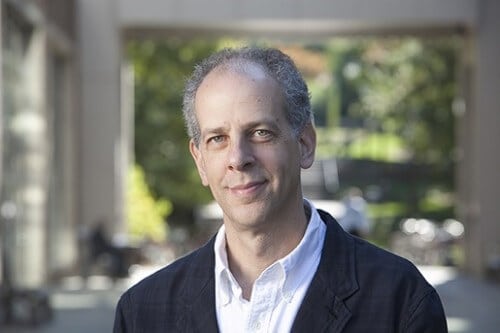Prof. Guillermo Spiro from Duke University, a world expert in image processing, will be the keynote speaker at the conference of the Computer Engineering Center at the Technion that will take place next week

"It is possible that in the future we will be able to provide computational tools for the early diagnosis of psychiatric disorders," says Professor Guillermo Spiro, from Duke University in the USA, who will be the main lecturer at the fourth international conference of the Center for Computer Engineering at the Technion (TCE, which will be held at the Technion next week. Named after Professor Spiro , a world expert in image processing, records many technological breakthroughs in the field of video processing, including a method for compressing images, which was used to speed up the transmission speed of images from Mars to Earth and the development of new vaccines based on imaging images of a virus.
"With psychiatrists Helen Egger and Gerry Dawson, I am working on the development of computational tools for the early diagnosis of psychiatric disorders using video image analysis," says Professor Spiro. "Diagnosis and assistance in the mental field are currently privileges reserved for the few, and our idea is to develop quick and simple scanning methods that can be used at home, in schools and children's clinics and provide the entire population with access to diagnosis. Psychological tests should be a standard, like hearing tests today. One of our main goals is to provide, with the consent of the responsible adults, tools for very early mapping of mental health, so that if necessary, the system can recommend sending the child to a specialist - just like hearing tests at school, on the basis of which some children are sent to a specialist. We want mental health to be treated at the same level. In the US, for example, less than a fifth of the children undergo an adequate mental diagnosis, and in cases of autism or anxiety, the diagnosis takes place three to four years late compared to the diagnosis we offer. Early diagnosis must not be limited to rich children only. We want to integrate the technology we are developing into simple-to-use devices."
Professor Spiro, born in Uruguay, came to Israel in the late XNUMXs as a kibbutz volunteer,
And in 1989 he was accepted to study at the Faculty of Electrical Engineering at the Technion. "I wanted to do my first degree at an excellent institution, and the Technion was of course an obvious choice," he says. "I enjoyed my undergraduate studies so much that it was natural to continue with higher degrees at the Technion. We worked very hard, much harder than I saw afterwards at any other university, but it was fun. The Technion shaped my life and my career, and every time I visit the Technion I feel like I've come home. I met my best friends at the Technion, and also my wife, so it was a perfect package deal."
"Developments in video and image processing pave the way for many applications," adds Professor Spiro. "I like interdisciplinary research and working with people. I was lucky and I collaborate with excellent colleagues and students who help me enter new fields. For example, in development
The technology for finding new vaccines based on imaging the external contours of the virus I am working with researcher Sriram Subramaniam from the US Institute of Health (NIH). The idea is to use the information obtained from CT examinations and by means of advanced image processing techniques that we have developed for a XNUMXD reconstruction of the shape of the Env - a protein found in the membrane of the HIV virus (we also have results in the context of the influenza virus). For this, an understanding of the mechanism of the passage of the virus between the cells is required."
The TCE conference will be held at the Technion on May 26-27 and will be attended by the world's leading researchers in machine learning and computer vision. The participants include Professor Richard Barniuk from Rice University, Professor Ronald Kuipman, from Yale University, Professor Peiman Milnefer from the University of California, Santa Cruz, Professor Joachim Wickert from SAARLAND University in Germany, Professor Guy Gilboa, Professor Natan Serbro and Professor Ronen Talmon from the Technion, Professor Michal Irani from the Weizmann Institute and Professor Amnon Shashua from the Hebrew University of Jerusalem.
